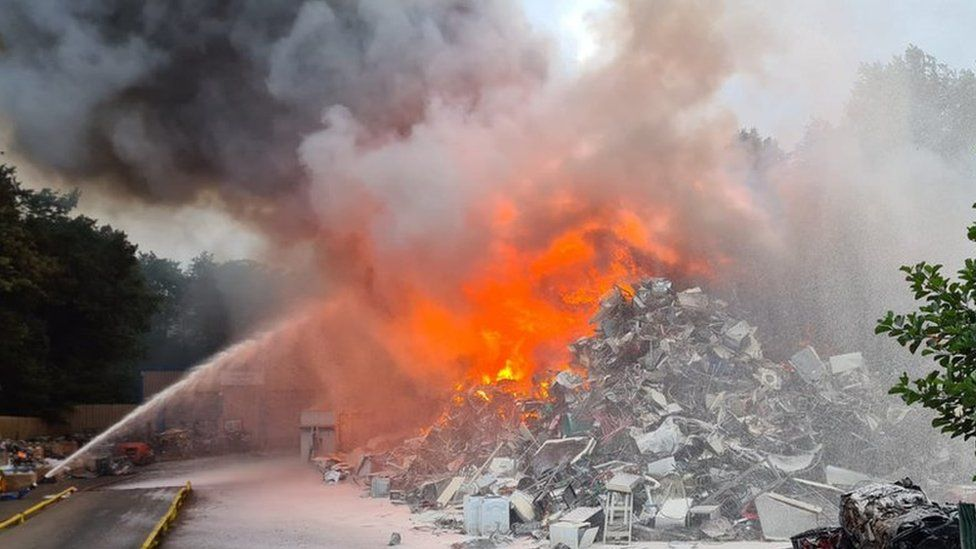Updated: Sep 7, 2021

Source: Stanford University
Summary:Interviews with Northern California residents reveal that social norms and social support are essential for understanding protective health behaviors during wildfire smoke events -- information that could be leveraged to improve public health outcomes.
In a case study of Northern California residents, Stanford researchers explored the psychological factors and social processes that drive responses to wildfire smoke. The research, which ultimately aims to uncover approaches for helping people better protect themselves, shows that social norms and social support are essential for understanding protective health actions during wildfire smoke events. The findings was published within month in the journal Climate Risk Management.
"It's important to understand how people behave so that public health communications professionals can potentially intervene and promote safer behavior that mitigates risk," said lead study author Francisca Santana, a PhD student in the Emmett Interdisciplinary Program in Environment and Resources (EIPER). "This kind of qualitative work is a first step so that we can learn how people are using information and interacting to make decisions. We can then look at where there might be leverage points or opportunities to promote more protective behavior."
Exposure to wildfire smoke can irritate the lungs, cause inflammation, impact the immune system and increase susceptibility to lung infections, including the virus that causes COVID-19, according to the Centers for Disease Control and Prevention. It's surprising that this fact is known yet people do little to actually understand the effect of wildfire.
According to the senior study author Gabrielle Wong-Parodi, an assistant professor of Earth system science at Stanford's School of Earth, Energy & Environmental Sciences (Stanford Earth). "It resonated with me, the things that people were doing to try to protect themselves in the absence of access to effective ways to reduce their wildfire smoke exposure," Wong-Parodi said, referring to a resident who breathed through a wet bandana in an attempt to avoid inhaling the toxic smoke particles. "It's urgent that we come up with strategies that are realistic for what people are going through."
Study authors Santana and David Gonzalez, who worked on the study as a PhD student at Stanford, interviewed residents who were affected by wildfire smoke from the 2018 Camp Fire that destroyed Paradise, California, and subsequent fires in Fresno, Santa Clara and Sacramento counties. They discovered individuals responded to wildfire in three ways: interpreting information together, protecting the vulnerable and questioning protective actions. Their responses were influenced by what they were personally experiencing at that time.
The researchers also found. "Social norms and social support were really influencing how people chose to act on their perceptions of threat," Santana said. "For example, a lot of people talked about observing others wearing masks, and in some cases that observation was enough for them to act by wearing a mask themselves." Their discussions revealed that the shared rules or standards of behavior within a social norms was a common reason for change in individual behaviour.
The study provides a framework for better understanding wildfire responses by examining social processes while acknowledging that cultural and political contexts, as well as factors like demographics, health status and previous exposure to smoke and air pollution, may also influence individual behaviors. In some cases, the researchers found that residents were couldn't protect themselves because they couldn't access N95 masks.
As these events become more common, there could be an opportunity to help prepare communities for future wildfire events, according to the co-authors. For example, programs that are designed to improve household comfort and increase energy efficiency could also include measures to reduce smoke intrusion during wildfire smoke events, Wong-Parodi suggested.
Some of the interviews revealed that residents simply didn't know what to do while experiencing a such devastating event. But even that revealed how processing uncertainty is a social exercise, not just a cognitive one.



